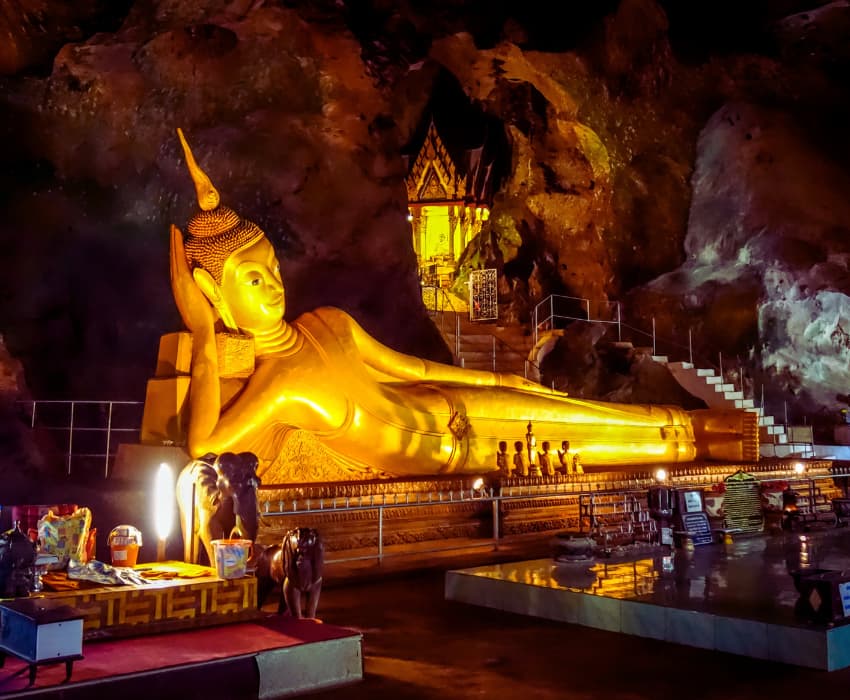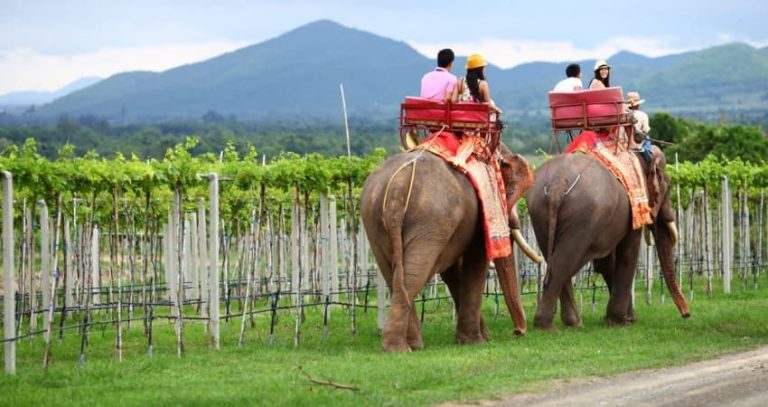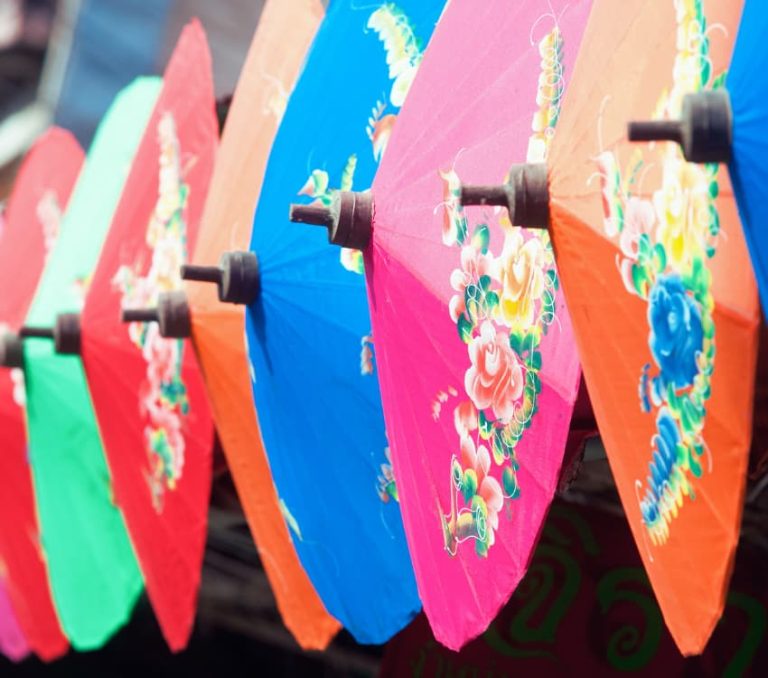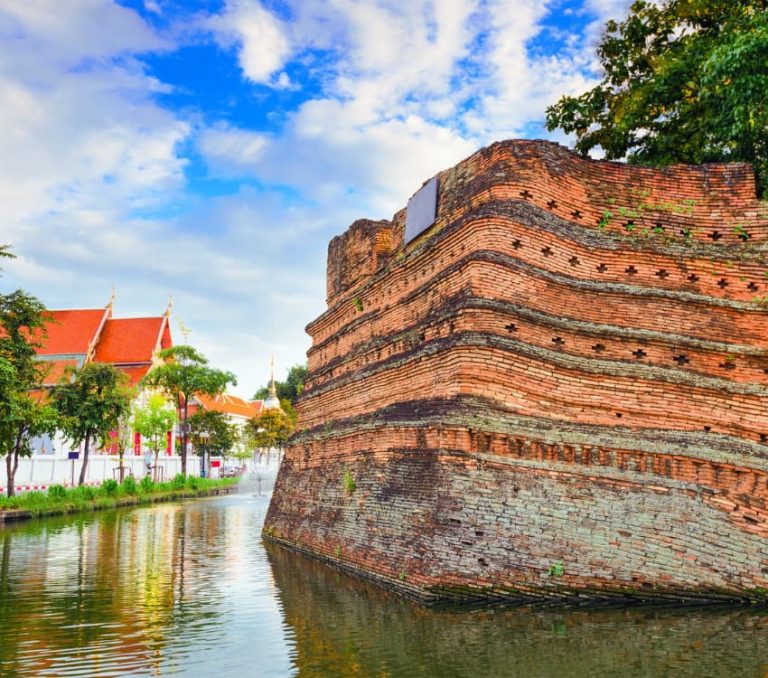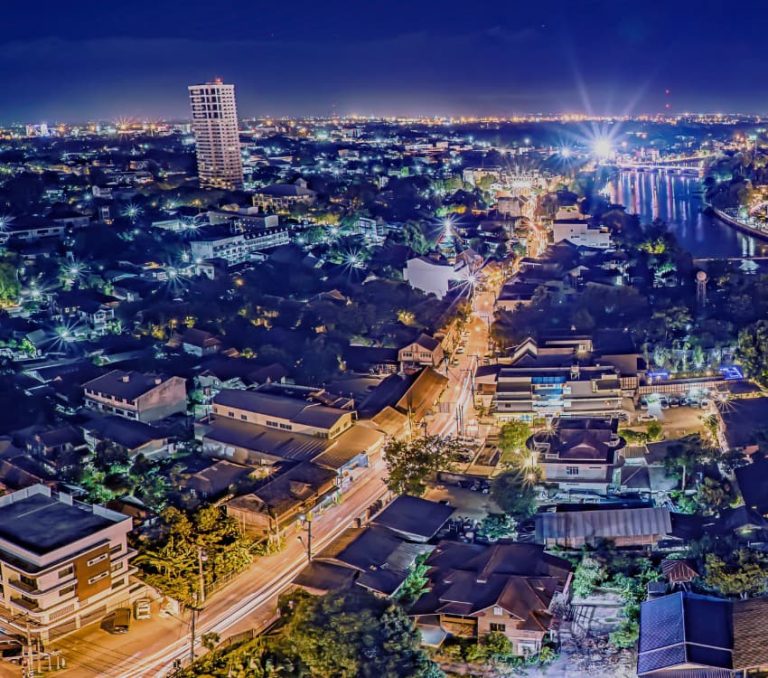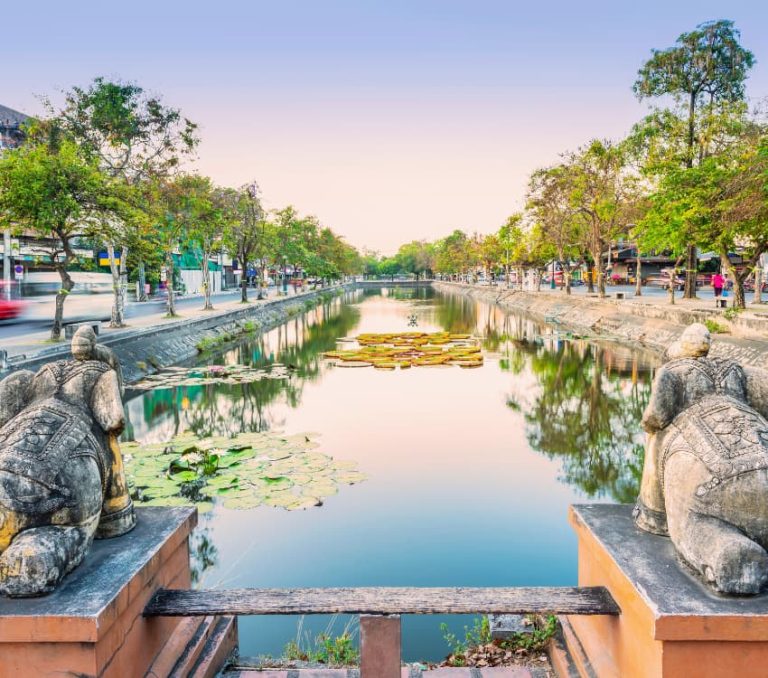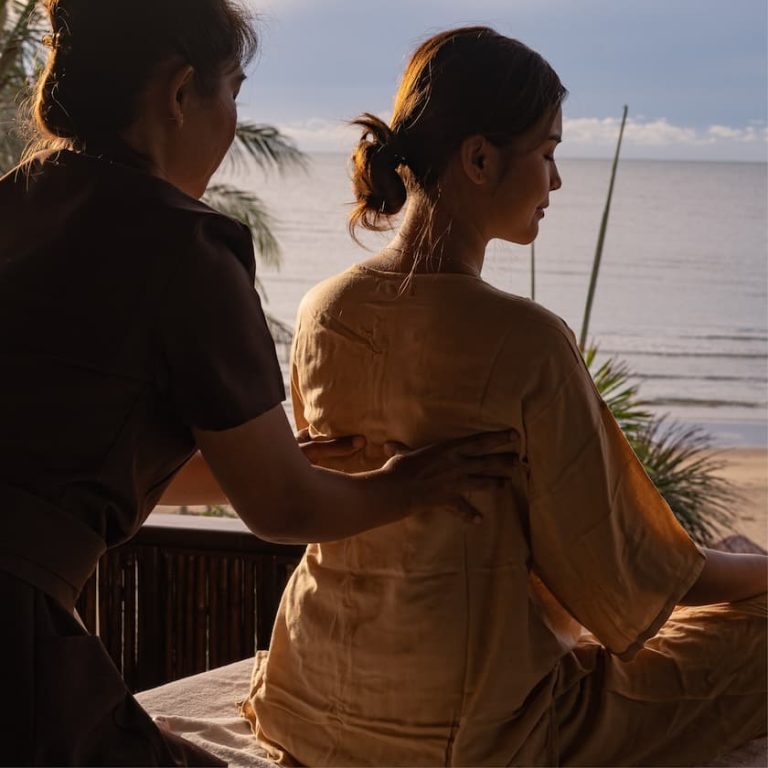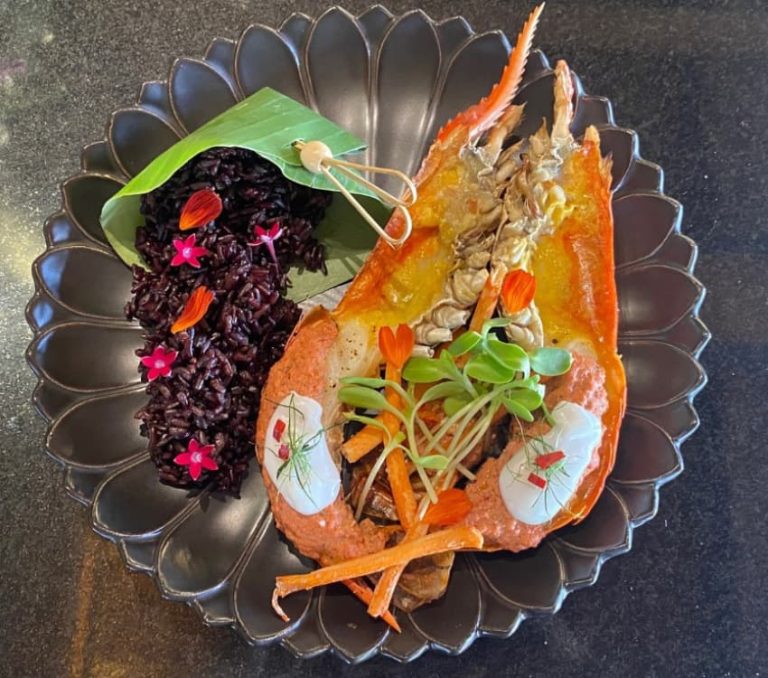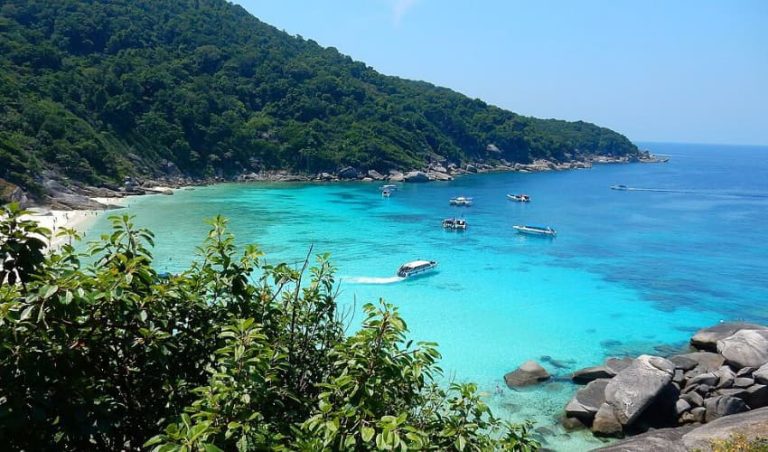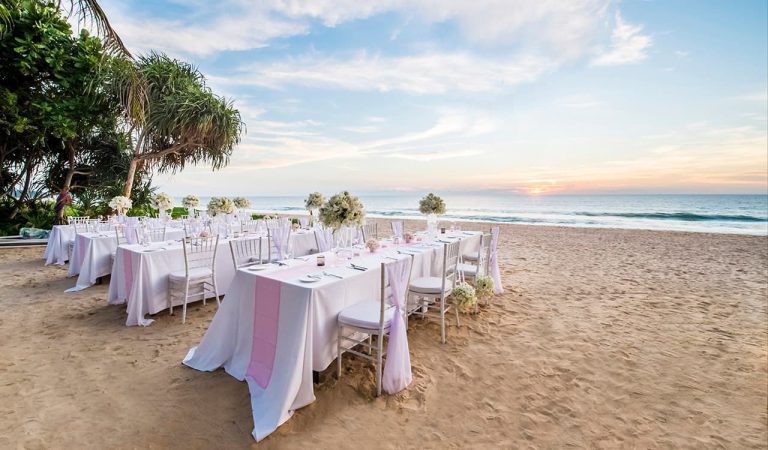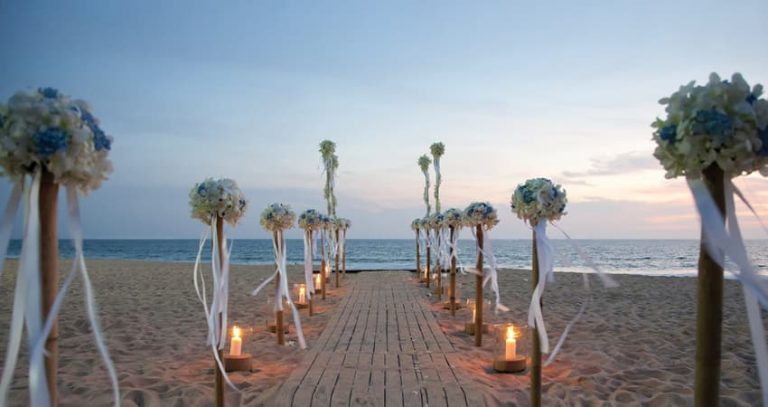Phang Nga, a province nestled along Thailand’s Andaman Sea coast, is renowned for its stunning natural beauty, limestone cliffs, hidden caves, and pristine beaches. But beyond its breathtaking landscapes, Phang Nga is also a place of rich spiritual and cultural heritage, home to many remarkable temples. These temples blend history, spirituality, and architectural beauty, often set against awe-inspiring backdrops. From hilltop pagodas to cave sanctuaries, here are the most popular temples in Phang Nga that you shouldn’t miss.
-
Wat Suwan Khuha
Wat Suwan Khuha, also known as Wat Tham or the Temple Cave, is one of Phang Nga’s most iconic temples in the Takua Thung district. Built directly into a limestone karst, this temple complex comprises several caves. The largest cave, Tham Yai (Big Cave), serves as the entrance to the temple and houses its most famous attraction—an impressive 15-metre-long reclining golden Buddha. Surrounding this Buddha are smaller sitting and standing Buddha statues, creating a peaceful, spiritual atmosphere.
The cave entrance is adorned with a colourful gate, and visitors are advised to park carefully as the local monkeys can be mischievous. Wat Suwan Khuha is also significant for its historical and archaeological value, with the cave walls featuring royal inscriptions from King Rama V and King Rama IX.
-
Wat Rat Upatham (Wat Bang Riang)
Perched atop Khao Lan Mountain in the Thap Put district, Wat Rat Upatham, or Wat Bang Riang, offers visitors a serene sanctuary with stunning panoramic views of the surrounding mountains. The temple is known for its towering 109-metre-tall Chedi Phutthathambanlue, a bell-shaped pagoda said to contain sacred relics of the Buddha. The chedi overlooks a large courtyard, providing an ideal spot for meditation and reflection.
In addition to the chedi, Wat Bang Riang is home to two striking statues: a large statue of Buddha seated under the protective seven-headed serpent Naga and a statue of Guan-yin, the Chinese Goddess of Mercy. The temple is known for its intricate interior design, with colourful carvings, sculptures of animals, and Buddhist murals decorating the walls.
Founded by Abbot Lung Por Chai over 30 years ago, this temple was supported by the local community, making it a deeply revered and significant site for spiritual practices and tourism.
-
Wat Tham Ta Pan
For those looking for a more unconventional temple experience, Wat Tham Ta Pan, located in Phang Nga town, offers a glimpse into Buddhist teachings on heaven and hell. Known as the Heaven and Hell Temple, it features an intriguing display of statues and sculptures depicting Buddhist views of the afterlife.
Visitors enter the temple grounds through the mouth of a giant dragon, which leads into a cave representing heaven. Inside, Buddha statues and peaceful imagery reflect the Buddhist concept of paradise. Upon exiting the cave, however, visitors are confronted with vivid statues depicting sinners being tortured in hell. These grisly scenes are designed to show the consequences of moral failings per Buddhist teachings.
While Wat Tham Ta Pan offers a fascinating insight into Buddhist spirituality, it may not be suitable for young children due to its graphic depictions of suffering.
-
Dragon Cave Temple
Located in the remote, mountainous area of Thap Put, Dragon Cave Temple is famous for its spiritual significance and reputed healing powers. According to local legend, the cave has natural healing energy, attracting those with serious illnesses such as cancer. The resident monks offer herbal teas that are said to help lower cholesterol and blood pressure. They also provide Buddhist meditation and chanting instruction, allowing visitors to immerse themselves in holistic healing practices.
The temple itself is a serene, peaceful place, with winding stairs leading to smaller shrines decorated with Buddha statues, carvings, and paintings. Dragon Cave Temple is a hidden gem for those seeking spiritual solace and physical well-being, and it is often included in tour packages alongside Wat Suwan Khuha and Wat Rat Upatham.
-
Wat Lak Kaen
Wat Lak Kaen, located in the Takua Pa district south of Khao Lak, symbolises resilience in Phang Nga. Severely damaged by the 2004 tsunami, the temple was rebuilt, and the Ubosot, or ordination hall, was completed in 2007. The Ubosot’s roof tiles are shaped to represent the mythical serpent Naga, which is believed to have protected Buddha during meditation. The three-tiered roof also symbolises the three Buddhist gems: the Buddha, the sangha (Buddhist community), and the dhamma (Buddhist philosophy).
Today, the temple complex is home to about 20 monks and serves as a place of worship and reflection for the local community. The rebuilt Ubosot features a golden seated Buddha and is where ceremonies and ordinations take place. Wat Lak Kaen’s reconstruction is a testament to the strength and spirit of the local community, making it a meaningful site for visitors.
-
Wat Manee Sri Mahathat
In the Takua Thung district lies Wat Manee Sri Mahathat, a new temple built in the years following the 2004 tsunami. It is also known as the Temple of the Black Monk due to its enormous black statue of Por Than Klai, a revered monk known for his prophetic abilities. King Bhumibol Adulyadej (Rama IX) favoured Por Than Klai, adding to his legendary status.
One of the highlights of this temple is its collection of life-sized wax figures of famous monks, carefully preserved in air-conditioned rooms. These figures provide a fascinating look into Thailand’s monastic traditions, with some representing monks who lived centuries ago. The temple is part of the Ao Phang Nga National Park, and its peaceful atmosphere, along with its rich cultural displays, makes it an attractive stop for visitors interested in religious history and natural beauty.
Phang Nga’s temples offer diverse experiences, from serene sanctuaries and healing caves to dramatic depictions of heaven and hell. Whether you are drawn to the towering chedis, cave sanctuaries, or stories of resilience and healing, each temple provides a unique window into the spiritual heart of Thailand. For visitors staying at Aleenta Phuket – Phang Nga Resort & Spa, these temples are within easy reach, offering a truly enriching cultural journey during your time in Phang Nga.
Related Articles:
- National Parks In Phang Nga Province
- Wat Suwan Kuha Temple in Phang Nga
- Hidden Gems in Phang Nga
- Phang Nga Natural Attractions
- Things to See and Do in Phang Nga
Aleenta Phuket
Phang Nga Resort & Spa
Phang Nga Resort & Spa
33 Moo 5, Khok Kloi,
Takua Thung, Phang Nga
82140 Thailand
T: +66 (0) 76 580 333

